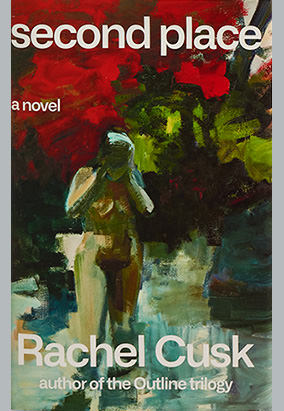

This double claim is alluded to throughout the book, for instance when M states her interest in “the existence of things before our knowledge of them” and furthermore considers herself as the child of such skepticism. That said, the feminine place was always supposed to vie with the weird place, as this receptivity is always also female-it is the second place that the feminine and the weird are allocated, and forced to share, in a rational, patriarchal world-one they here usurp. This makes for the fascinating tension of reading, on the surface, a literary novel about art, attachment, and womanhood, and, seething under its skin, the eerie capacity of language to leave behind the human being altogether. Second Place writes of a reality indifferent to sense or logic, even or especially to the extent that such reality is coextensive with these domains-the register of the uncanny. Through its claim to the indefinite “second place,” there is an echo from Plato’s Timaeus and the way that Plato speculates on a “third element.” Yet-and the Timaeus is aware of this-the claim to the “second place” is never straightforward, is not part of the master discourse, and for this reason its imagination belongs to the genre of weird fiction. Indeed, Second Place is a metaphysical novel, and it is a work of weird fiction. Tellingly, a key character refers to the cottage by way of the familiar horror trope of the cabin in the woods. Yet it appears that one urgent sense of the second place must be its work in separating mind, writing, and reality.

It is also the place that M, or perhaps all women, take in relation to the freedoms and privileges held by men. This second place is the cottage that M and Tony resurrected on their property, and where L is to stay. (Similar to the way in which ebb and flow reveal reality, so has the Covid-19 pandemic, which the novel possibly alludes to, stripped our existence naked.) Indeed, mind-the human element-is here questioned deeply, or better: reassigned to a second place. Any attribution of meaning to it, then, is conditional on the desires of nature or reality itself. As M explains to L by letter, the marsh is covered over and given back by the sea twice every day. The narrator, M, has a private obsession with L’s art, and she is desperate to share the experience of the scenery with him. This is the landscape wherein Second Place, the new novel of Rachel Cusk-the prolific author of the Outline trilogy and many other works-is staged: an enigmatic seaside marshland somewhere in North America, where the narrator lives with her husband, Tony, and where they have invited L, a painter of waning aesthetic significance, to stay for an indefinite amount of time. THE MIND RECEDES, reality remains-and writing.


 0 kommentar(er)
0 kommentar(er)
